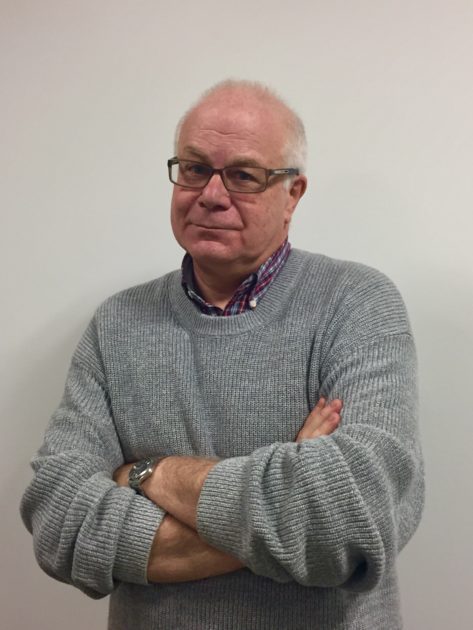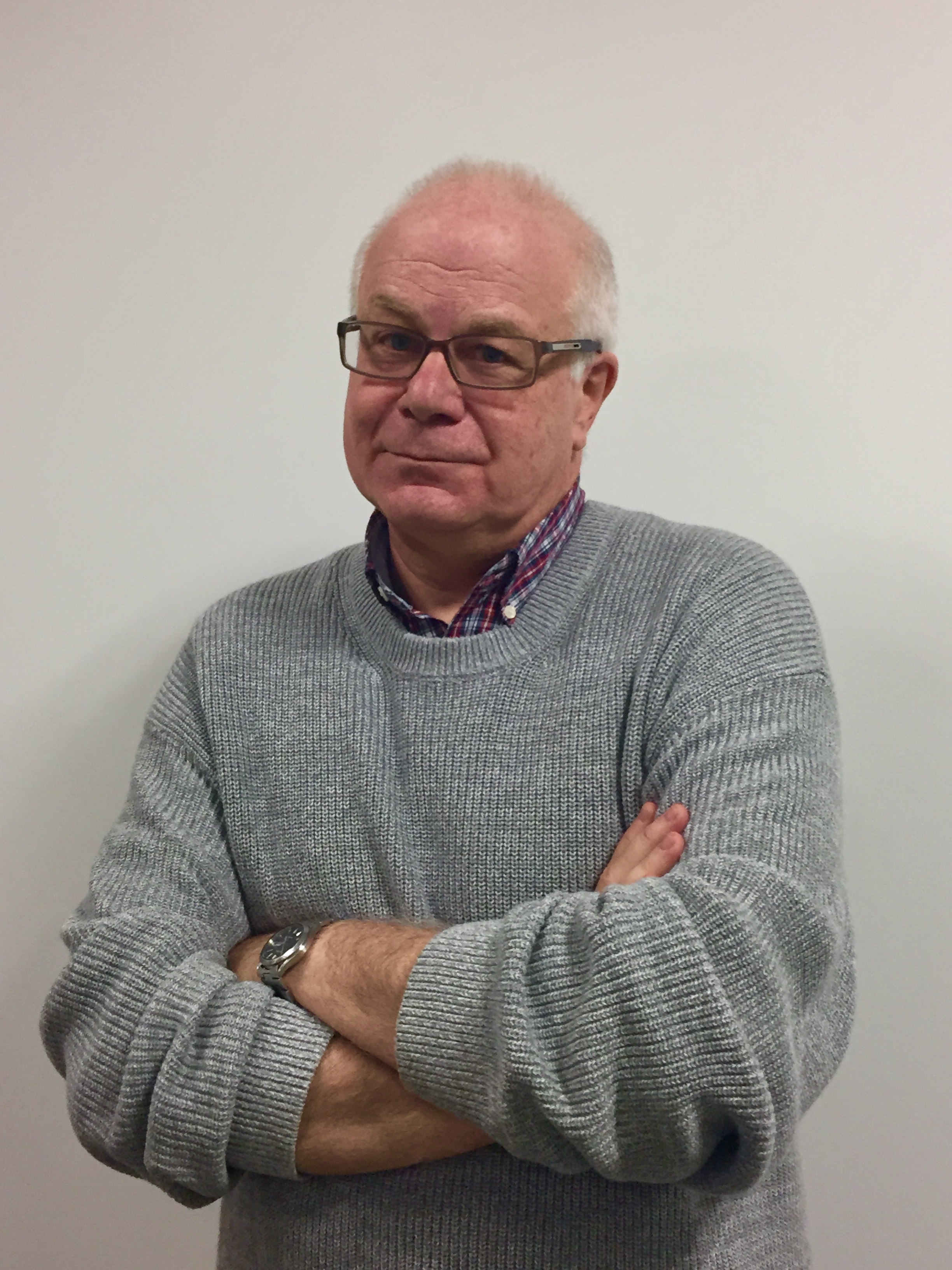Dr. Alexander V. Pantsov, a renowned professor of history, has lived quite a life since his beginnings in Cold War-era Russia.
Born in 1955 near Moscow to a pair of high school teachers, Panstov grew up during the reign of the Communist Party.
“I was born to [a] family of intellectuals. My grandfather was a professor of Chinese studies at Moscow State University,” Panstov said. “He exerted a great deal of influence on me.”
Panstov’s grandfather, who had been in China during the 1920s and had also taken part in the Chinese Revolution, shared his stories and experiences with his grandson while Panstov was growing up. Inspired by his grandfather, Panstov took to studying Chinese history and enrolled at Moscow State University in 1973.
“I got enrolled and I began to study everything that looked, sounded, tasted Chinese,” Panstov said.
There, within MSU’s Institute of Asian and African Studies, he learned about Chinese history, philosophy, religion, culture, politics, international relations, and language.
“We studied six days a week, not five, but six [for] several hours every day for five years,” he said.
While able to immerse himself within his studies, Panstov was still a subject to the rule of the Soviet Union, which he said had both pros and cons.
“We had free education, we never paid tuition. Never,” Panstov said. “Education was open for everyone.”
Pantsov never had to worry about unemployment–in the Soviet Union, there was 100 percent employment. “So, the school had to give me a job,” Pantsov said. “At the time I was graduating, the administration had to offer me a job.”
However, there were several restrictions placed upon Russian citizens that severely limited their ways of life.
“It was a totalitarian system, and we had no freedom. This was the greatest minus. We couldn’t travel freely,” Pantsov said. “We could not read what we wanted to read, because there was censorship, and you couldn’t just simply pick up a book you liked and read … you could be arrested.”
In addition to these constraints, citizens were unable to speak out against the government.
“Some people were arrested and were sent to jail or psycho-clinics,” Pantsov said. “[They were sent to] psycho-clinics because they simply announced that these people were mentally challenged and that’s why they criticized the regime.”
Because of the Communist Party’s totalitarianism, citizens were also limited in their ability to advance economically.
“To get a better position in the society, the first prerequisite is to be a member of the Communist Party … ” Pantsov said. “Nobody would appoint a non-party member as president of a school. Nobody would appoint a director of a factory if he is not a party member.”
Despite these social and economic binds, after five years Panstov graduated from MSU with a bachelor’s and master’s in Chinese studies in 1978. He would go on to earn his first PhD in 1983, and his second in 1993, both within the realm of Chinese studies. He published two books during this time.
Even though he had been studying China for over a decade, Panstov had yet to visit the land he had been learning about for so long. However, as the power began to shift within the Russian government, so would Panstov’s ability to explore the world.

“Gorbachev came to power in 1985, and it was the period of relaxation,” Panstov said. “The Communists sill were in power, but it was the beginning of the reforms.”
It was during this time that Panstov was able to take a trip to Mongolia and to travel for the first time outside of his homeland. Soon afterwards, Panstov finally got to visit China.
“When Gorbachev seized power, he decided to improve relations with China. He started negotiating with China … After a long period of political debates, they finally signed this program, that means that scholars and students from both countries … could now go.”
Panstov sent an application in 1986 to travel to China but was denied. He then sent another one in 1987 and was accepted. He studied abroad there for a year.
“Then I got back in 1988 and everything was collapsing in Russia,” said Panstov. “It was already a period of deep economic reforms, political reforms, ideological reforms. The party was still in power but we already had a multi-party system. Everything began to change.”
It was not long after this wave of reforms that the Communist Party began to crumble, and Panstov and his wife Ekaterina Pantsov joined the masses of Russian people who were finally able to raise up their voices against the dictatorship.
“In 1991, the Communist regime collapsed, so we had an anti-Communist revolution … ” Pantsov said. “I was among people who took part in the demonstrations. I was not among the leaders, but all my friends [and I] took part in mass demonstrations. It was great fun.”
Panstov said, “We’d go to the streets, we’d join the mass of people, we walked the streets of Moscow to downtown Moscow. There’s a huge square in downtown Moscow, we would stay there [and] we would scream, ‘Down with Communism! Long live freedom!’”
“We needed freedom,” Pantsov said. “That was the major problem, and that’s why I came to the United States.”
In 1991, Panstov mailed in an application to a research institute within the U.S.
“At that time, Communism was about to collapse, and everything was possible,” Pantsov said. “The party was basically losing control.”
As travel restrictions eased and after receiving a grant, Panstov journeyed to America to continue his work.
“I got money to travel to the United States for about two months to do my research at the Kennan Institute for Advanced Russian Studies at the Woodrow Wilson Center in Washington, D.C.”
Upon his arrival to the states, Panstov had an unusual first impression of America.
“I came on the last day of October. The last day of October in America is Halloween. So, when I first came, in a few hours some kids arrived and said ‘Treat?’ So, I said my god, that’s how they treat Russians,” he said.
Despite this, Panstov soon came to enjoy America.
“I loved the country and I believed that here is the country I want to be [in] because this is a melting pot. This is a country of immigrants, and I felt [at] home,” Pantsov said. “Nobody would say, ‘Oh, you speak English with heavy accent, and you’re terrible,’ because most people speak with an accent.”
During his first trip to the states, Panstov was invited to visit and lecture at several different schools, where he met and made several friends before heading back to Russia.
A few years later, one of these friends called to inform him of a temporary replacement position at Youngstown University. Youngstown ended up hiring both Panstov and his wife, and thus they moved to America.
After Panstov’s term expired, he worked a brief stint at DePaul University in Chicago before moving back to Russia with his family in 1998 to work at MSU. Unfortunately, by then the economy and government had halted in their improvement.
“The economic system was awful, my salary was very low, and the political system was terrible,” said Panstov. “The whole political system was corrupted.”
It was during this time that Panstov began to look for a new job and learned about an opening at Capital University. He sent an application, was invited for an interview, and was offered tenure.
“I settled down here in 1999,” Pantsov said. “And here [I have been] for twenty years.”

